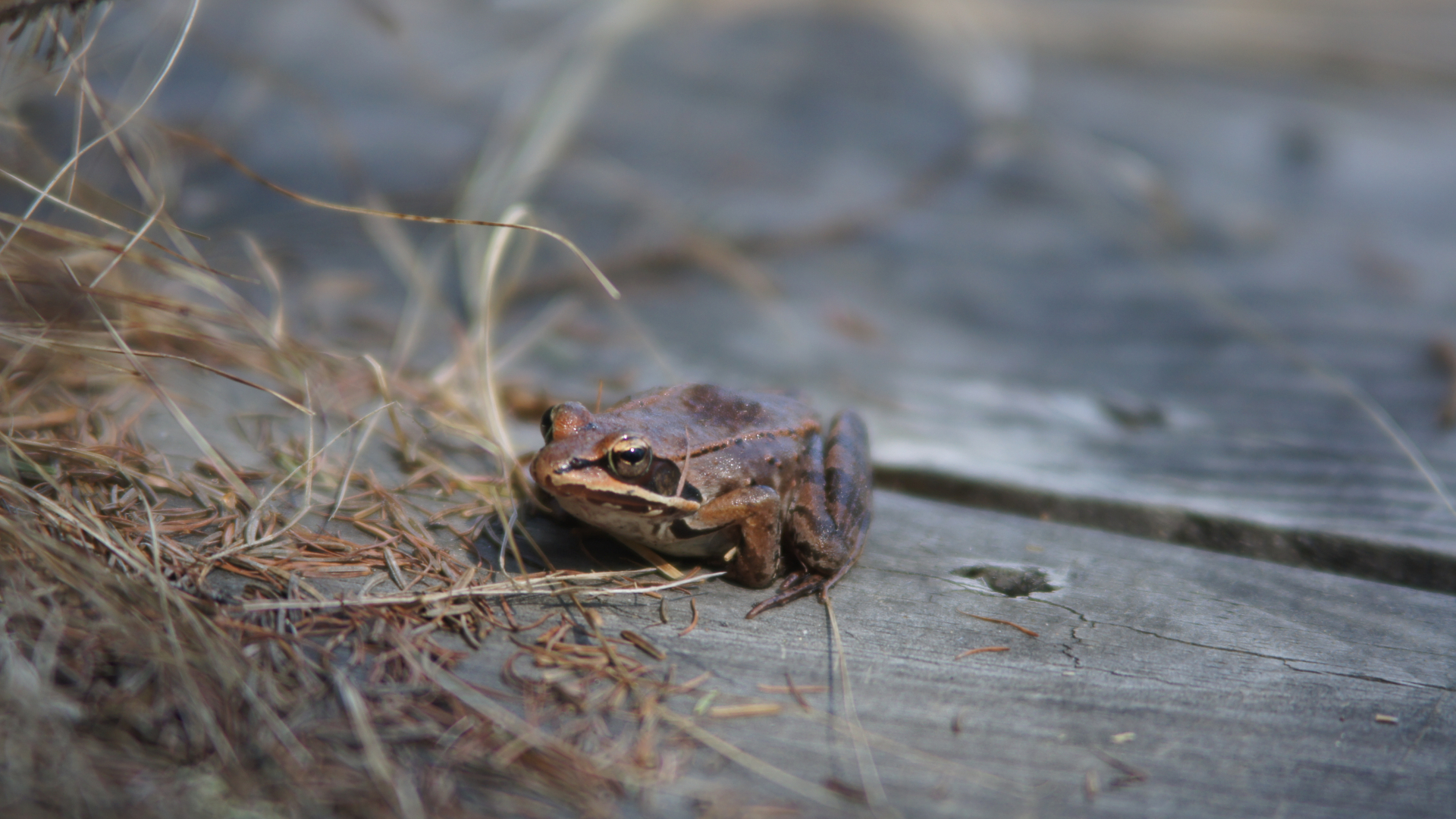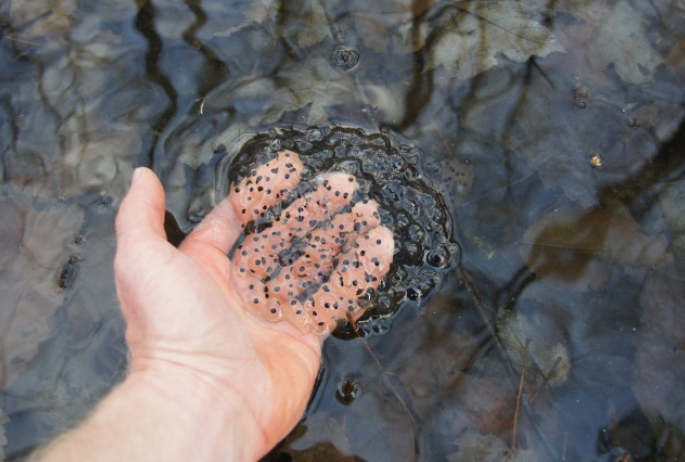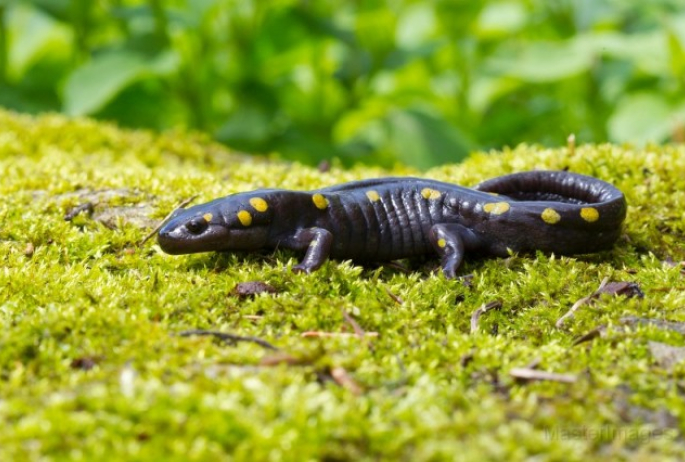While I write a great deal about birds and birding – particularly as spring migration spreads its wings north and our breeding birds are arriving – amphibians offer us some of the first changes in the spring soundscape – before many of our birds begin to sing or even arrive from the south.
The past few weeks have been marked with explosive breeding congregations of amphibians as warm weather has brought them out to call for mates in the evenings. The first species to announce its spring time intentions to mate are wood frogs which can even be found calling in pockets of water which may be still partially covered with ice! Spring peepers are soon to follow, and the past few weeks my walks along the Bloomingdale Bog Trail, at the Paul Smith's College VIC, and my night time exploration of Madawaska Bog have been full of both species. Northern leopard frogs too have started breeding, and I've heard them calling both in Madawaska and along the Bloomingdale Bog Trail this week.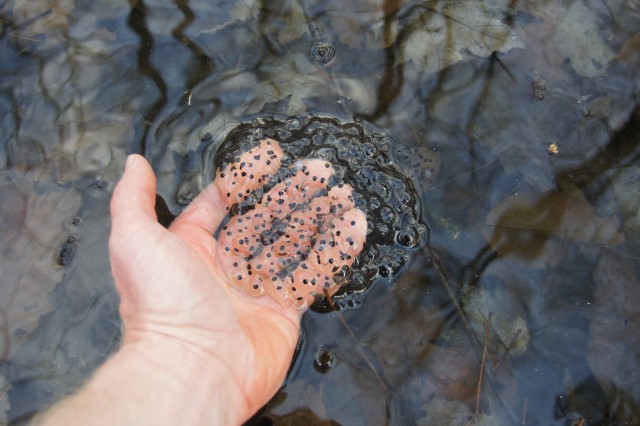
Hearing such choruses is not difficult. They are loud and most folks can simply open their cars windows in the evening as they drive if they wish to hear peepers. But to really observe breeding congregations can take some time and patience. Many breeding frogs get quiet and may slide below the surface as they feel you walking towards them. This does have the benefit of saving your eardrums the ear-splitting peep! of spring peepers, but often all we get to see of the frogs are ripples in the water.
In order to see them, I'll walk down and sit at the water's edge. This generally hushes the frogs, but if you sit patiently and wait, they'll begin their chorus again and you can find them with legs splayed at the water's surface piping for all they're worth. If peepers are involved, I recommend ear plugs if you do this. Seriously. Sitting that close to a choir of these amphibious cherubs may drive one to madness. In fact a college professor of mine once had a friend who had to switch their graduate research topic from peepers to something else because the sound was too much to take!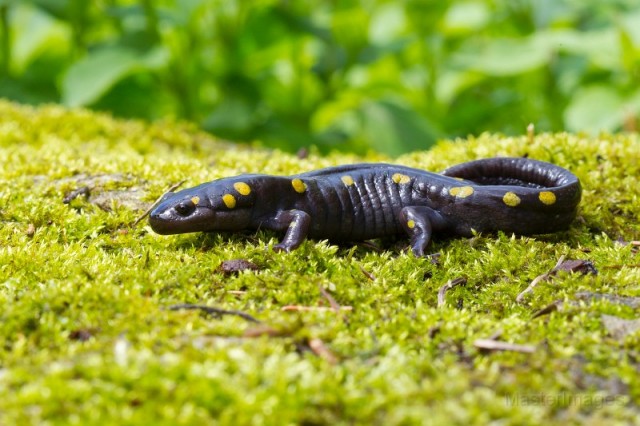
The frogs generally use the margins of lakes and ponds – shallow and often seasonally flooded areas which protects them, their eggs, and larvae from fish that prowl deeper waters. In fact, many of the pools they use are strictly seasonal and dry up as summer progresses – hence they have to get out early in the spring to give their larvae time to develop before the pools disappear. And that's why wood frogs and peepers emerge so early in spring when they can still face cold temperatures. And they are not alone. Spotted salamanders likewise emerge (later than the frogs, but in early spring) from deep in the ground to clamber down to breed in vernal pools which have been filled by spring rains and snow melt. But they do it without announcing it to everyone!
And this past week American toads have started their trilled chorus – which can sometimes run most of the day. Just the other evening I took a short walk to listen to the toads trilling in Lake Flower in Saranac Lake. It was a beautifully clear night, and I stood there reflectively listening as they announced spring. The large females are making their way to the chorus of males – for the most important event in their busy spring calendar. I've also been leaving my windows open at night to listen to the toads as I fall asleep. A night time serenade harmonizing that spring is here.
